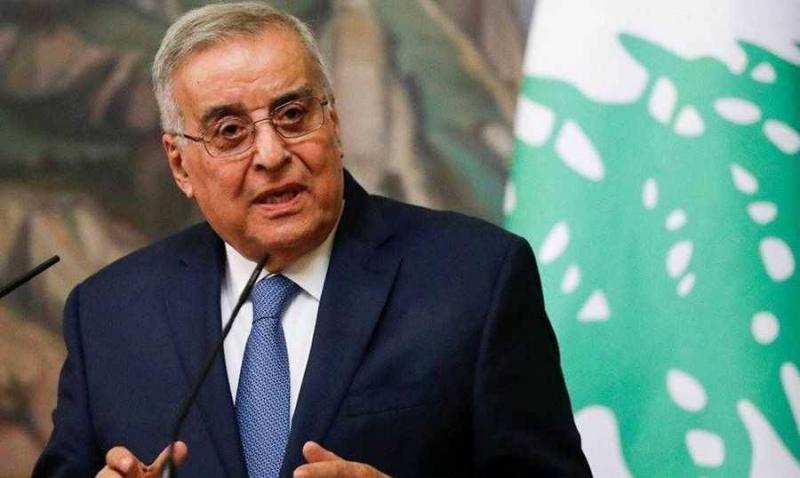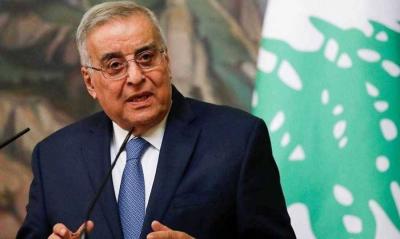Minister of Foreign Affairs and Expatriates in the caretaker government, Abdullah Bou Habib, returned last night from Cairo, where he represented Lebanon at the 160th session of the Arab League Council at the ministerial level. Bou Habib delivered a speech in which he stated: "I am pleased to thank His Excellency Samah Shukri, Minister of Foreign Affairs of the Arab Republic of Egypt, for his efforts during his presidency of the 159th session of the Council, and I extend my congratulations to His Excellency Nasser Bourita, Minister of Foreign Affairs of the Kingdom of Morocco, on his presidency of the 160th session, wishing him success in his mission."
He added: "I would also like to thank His Excellency Secretary-General Ahmed Aboul Gheit and the General Secretariat for their appreciated efforts in managing the affairs of the League between the 159th and 160th sessions." He continued, "The recent period has witnessed an increasing need for joint Arab action as awareness of its importance deepens to face the common challenges presented by developments in the war in Ukraine and its implications for global stability, especially food and energy security. We have indeed seen tangible progress in this regard in various fields, which has raised the hopes and expectations of Arab peoples."
He further noted: "These hopes have been bolstered by the initiative taken by Saudi Arabia through signing an agreement with the Islamic Republic of Iran in Beijing. This step clearly expressed the necessity for the people of the region to address and resolve their issues themselves. This historic decision was accompanied by the launch of an effective Arab role to resolve the Syrian crisis, reflecting a burgeoning desire to solve our problems ourselves and activate joint Arab action for the benefit of our countries and peoples."
Bou Habib emphasized that "joint action has prerequisites, including starting from commonalities and fortifying them, mutual care for interests, and relying on dialogue, consultation, and coordination, especially in international forums. In this context, following the congratulations from the People's Democratic Republic of Algeria on its upcoming membership in the Security Council, I express my country's full confidence that it will be the voice representing Arab interests and will prioritize coordination and consultation with Arab countries that have issues before the Security Council."
He pointed out that "Lebanon continues to face the daunting challenges that have arisen following the explosion of the financial crisis and the deepening of its social and living crisis, which have various causes that we know, both internal and external. The first political consequences of this crisis are represented in the present difficulty of electing a president for the republic in accordance with constitutional requirements. Nevertheless, we are determined to continue working and making more efforts to fulfill our responsibility in electing a president for the country and undertaking the necessary reforms to rebuild the state and the economy, which are strictly Lebanese duties open to cooperation with brothers and friends."
He added: "In this regard, the issue of the role of the United Nations Interim Force in Lebanon (UNIFIL) has recently been presented, which is deployed south of the Litani River in southern Lebanon. We have ensured that the Security Council's decision to extend its mandate confirms that it operates under Chapter VI, which requires cooperation and coordination with the Lebanese government."
He stated: "The on-ground realities impose themselves as the relationship between Lebanon and UNIFIL remains excellent, and this situation persisted under the extension decision issued last year. Lebanon's position always stems from a desire to ensure peace in the south and the safety of its people, as well as the safety of the international forces, while fully respecting Lebanese sovereignty."
He highlighted that "within this same concern, Lebanon is keen on affirming its originally delineated land borders with Palestine since 1923, which has become increasingly important in making Israeli violations more apparent to everyone globally and to the international community that does not want to see ongoing breaches of Lebanese sovereignty on land, sea, and air, which have exceeded 25,000 since 2006."
He explained that "relatedly, the number of Syrian refugees in Lebanon has recently increased, adding additional pressure to already strained economic and social conditions, as well as to limited resources. These refugees flee Syria due to economic and living reasons exacerbated by the worsening economic crisis there. Far from pleading and calling into the desert of silence and neglect, everyone should know that helping Syria overcome its suffocating political, economic, and living crisis is urgent, particularly for neighboring land and maritime countries, as the ramifications that may arise from the current crisis regarding refugees could be much more serious than some might imagine."
He stressed that "it is important for me to reiterate the necessity to facilitate and expedite the return of Syrian refugees to their country, towns, and villages, where it is vital to stop politicizing this issue, which now threatens the security and stability of Lebanon and host countries. We also emphasize the need to activate the early recovery plan, not just for Syria and Syrians but for all host countries."
He added: "We all witness what is happening in Palestine and what the Palestinian people are facing. We all observe the Israeli brutality and the practices undermining the foundations of the two-state solution, which the Israeli side continuously rejects. While Arab countries adhere to the Arab Peace Initiative adopted at the Beirut Summit in 2002, settlement expansion continues, settler armament increases, and the appetite for destruction, displacement, and confiscation of property grows, along with the ease of killing Palestinians."
Bou Habib concluded: "In contrast, we all witness the heroism of the Palestinian people and their readiness for sacrifice and courage in resisting the Israeli army. I salute, from this podium, those acts of heroism and sacrifice, and I reaffirm my support for the struggle of the Palestinians for the liberation of their land and the establishment of their state. Without solving the Palestinian issue in all its aspects, including the implementation of the right of return, there will be no peace and stability in the region. I wish all success for the work of our council."




